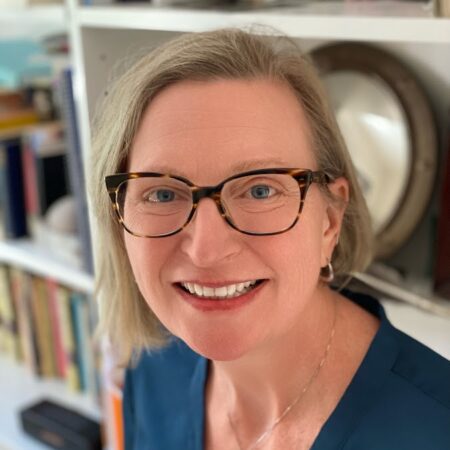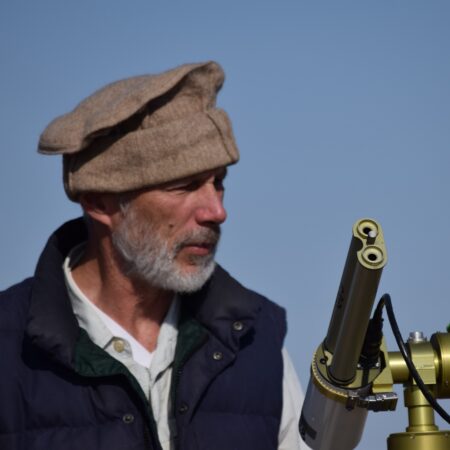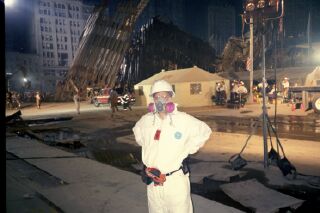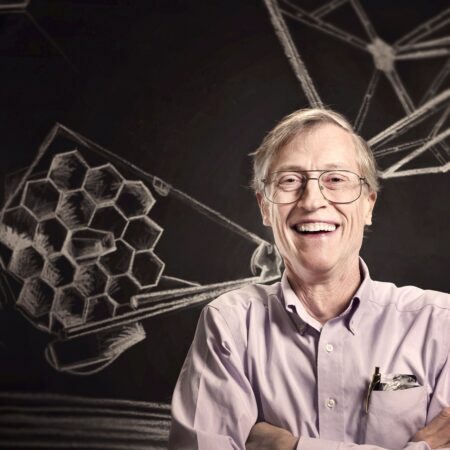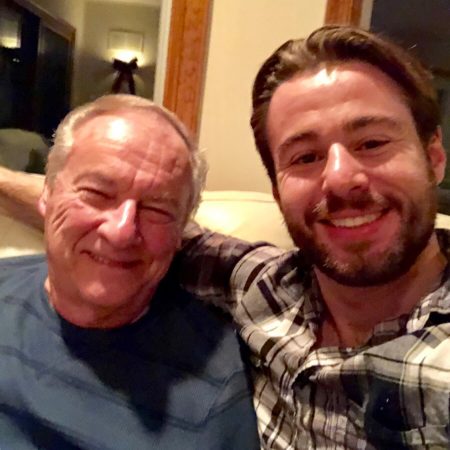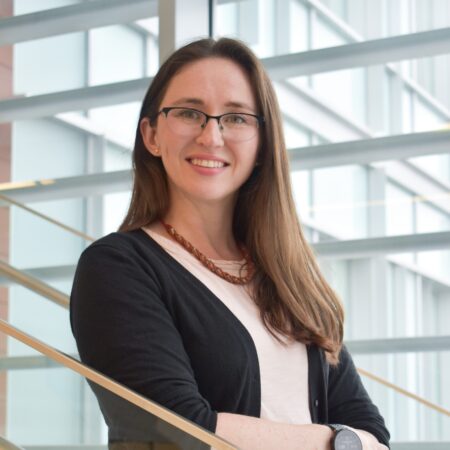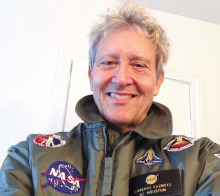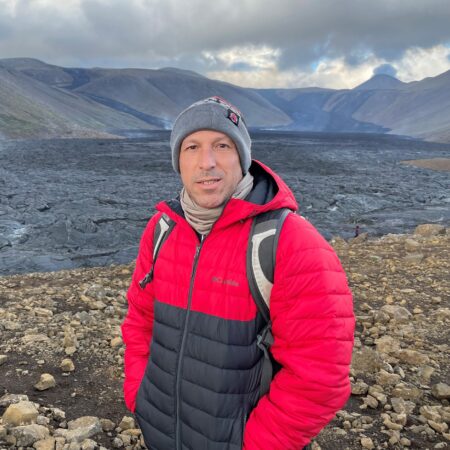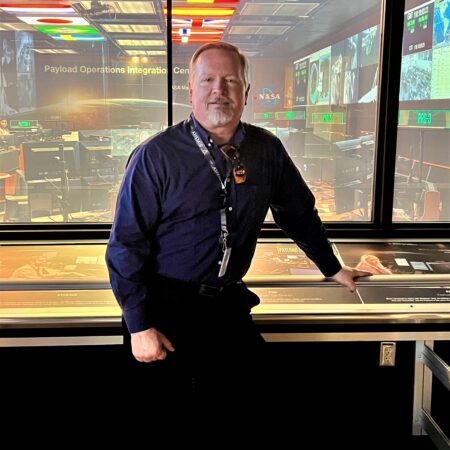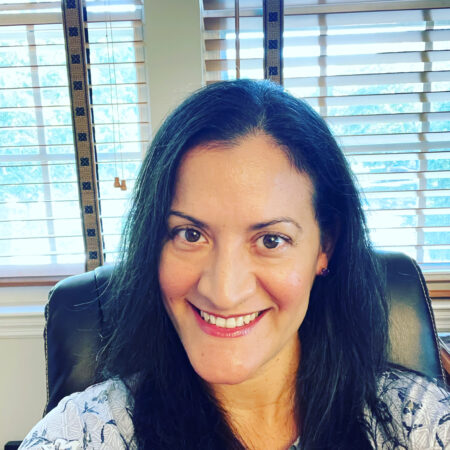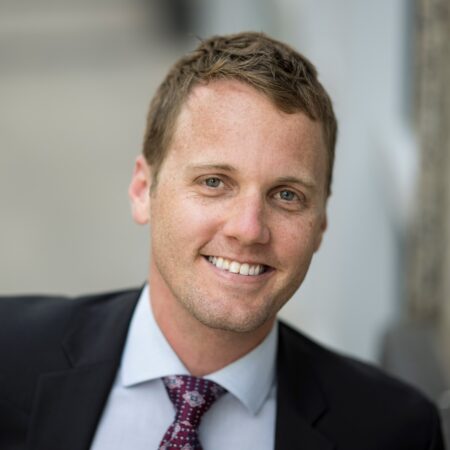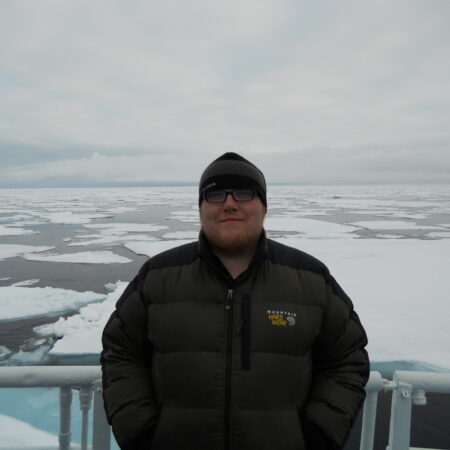Refine
Date Range Clear
Recorded by Clear
Keywords Clear
Partnerships Clear
Organizations Clear
Places Clear
Languages Clear
Initiatives Clear
Woody Turner, the program scientist for biological diversity and manager for ecological forecasting programs at NASA, and one of the few people in the world who directly harness the power of space to solve a whale of a problem –...
While Patrick Taylor spends a huge chunk of his time in the clouds, his work has nothing to do with daydreaming. The Research scientist at NASA’s Langley Research Center is working on understanding more about the role of clouds in...
Miguel Román, a Physical researcher Scientist at NASA's Goddard Space Flight Center, shares his journey from his childhood in San Juan, Puerto Rico to NASA. Seeing the impacts of hurricanes and urban growth where he grew up, and the practical...
Renee Weber is the Chief Scientist at NASA’s Marshall Space Flight Center, which basically means she represents all science at the center- pretty cool if you ask us! We talked to Renee about the importance of seismology, building personal relationships...
Michael Hesse is the Director of Science at NASA’s Ames Research Center, focusing on space biological science. We talked to him about being a good leader, doing science all over the world, and the joys of racing cars.
Michael Freilich, Director of NASA's Earth Science Division, shares about his life studying the oceans and Earth as a system. While still in his high school's oceanography club, he started exploring a question about how waves move that later became...
Dr. Chelle Gentemann is the Open Science Program scientist in NASA’s Office of the Chief Science Data Officer. In this role, she works to understand the impact, and development assessments, of NASA’s strategy for Open Science. She recently sat down...
With over thirty-years of experience in aerosol research as a Project Leader on NASA’s AERONET program, retired NASA scientist Brent Holben knows his way around those finer details. Now three-months into his retirement, Brent walks us through his adventurous world-trotting...
In the mid-1990s, the town of Libby, MT, discovered they had a serious problem. The small town of fewer than 3000 people had reported over 300 fatalities from asbestos contamination. Enter Aubrey Miller, from the EPA, and Geoff Plumlee, from...
As a child, Luke Oman was always looking out the window. Today, he works on atmospheric processing for NASA. How do volcanic eruptions affect everyday life? What happens when sulfur dioxide gases from volcanoes interact with sulfate aerosol and stay...
John Mather has an exciting year ahead of him- he's the senior scientist for the James Webb Space Telescope, the planned successor of the Hubble Space Telescope, which is scheduled to be launched this October. We talk to John about...
In the second part of the interview we discuss his career as an engineer working on the CORONA spy satellites, black projects, and Voyager 1-2 for NASA.
Ashley Greeley is a research scientist in the Heliophysics Division at NASA’s Goddard Space Flight Center where she studies particles trapped in the magnetic field surrounding Earth. She sits down with us to talk about overcoming imposter syndrome, building innovative...
Lawrence Kuznetz shares his Moon Landing story for the Moon Landing in Context Project at Framingham State University. Lawrence discusses his personal experiences working for NASA, the Apollo programs, and the night of the Apollo 11 Moon Landing. He also...

Brothers Blaze Belobrajdic (38) and Lance Belobrajdic (35) discuss enlisting in the military, transitioning to civilian life, and working at NASA.
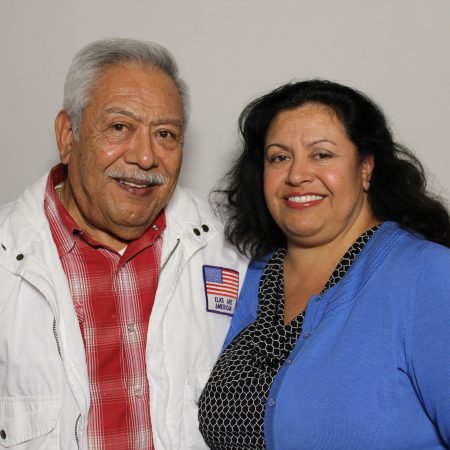
Peter Falcon is an Earth Science communications specialist at NASA’s Jet Propulsion Laboratory with an atypical background: behavioral science. As a communications specialist, Peter acts as a liaison between NASA projects – such as the CloudSat program – and students,...
Walt Petersen is chief of the Science Research and Projects Division at NASA Marshall Space Flight Center. Basically, he leads a group of folks who research and develop technology to explore and study the universe and also to observe and...
Next Generation Sequencing Scientist Dr. Lovorka Degoricija works on NASA's GeneLab Project where she studies biology that changes in the environment of space. She extracts DNA from spaceflight samples that have been returned to Earth and processes them so sequencing...
Delia Santiago-Materese is a program scientist at the NASA’s Planetary Space Division in Washington, D.C., where she helps facilitate science and works with the community to make decisions about where NASA’s scientists should be exploring next. She spends her days...
Aaron Piña is the National Program Lead for Atmospheric Sciences and Fire Weather Research at the United States Forest Service where he runs a research program that helps transition knowledge into the hands of decision makers around the world. Initially...
Lori Glaze, Acting Director of the Planetary Science Division at NASA Headquarters, works with everything from understanding asteroid trajectories and material make up to the InSight mission which recently landed a rover on Mars. It’s no exaggeration to say Lori...
David Young, Director of Science at NASA Langley Research Center, discusses his life's work studying the earth's climate. After an early interest in astrophysics, he focused in on earth science due to his desire to do research to help humans....
Glenn Orton is so deep in Jupiter mission information that he gets envious when he’s not involved in a space project studying the gas giant. The senior research scientist at the NASA Jet Propulsion Laboratory studies the composition and structure...
Some of the materials Francis McCubbin works with as the astromaterials curator at NASA’s Johnson Space Center include meteorites that were collected in Antarctica, solar wind samples, pieces of asteroids and comets, and the Apollo rocks brought back from the...

!["Something I learn today is something that [could help] society tomorrow." an interview with Patrick Taylor](https://archive.storycorps.org/uploads/2019/02/181211_PatrickTaylor-450x450.jpg)

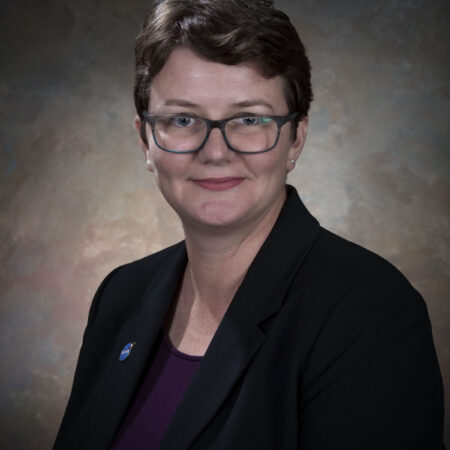
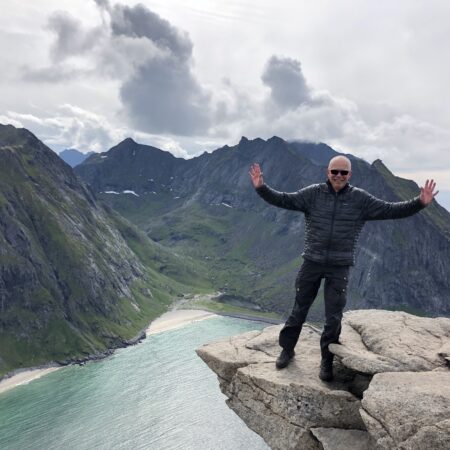
!["I joined an Oceanography club & actually asked the question that ended up [being] my thesis." an interview with Michael Freilich](https://archive.storycorps.org/uploads/2019/02/181212_Freilich-450x450.jpg)
